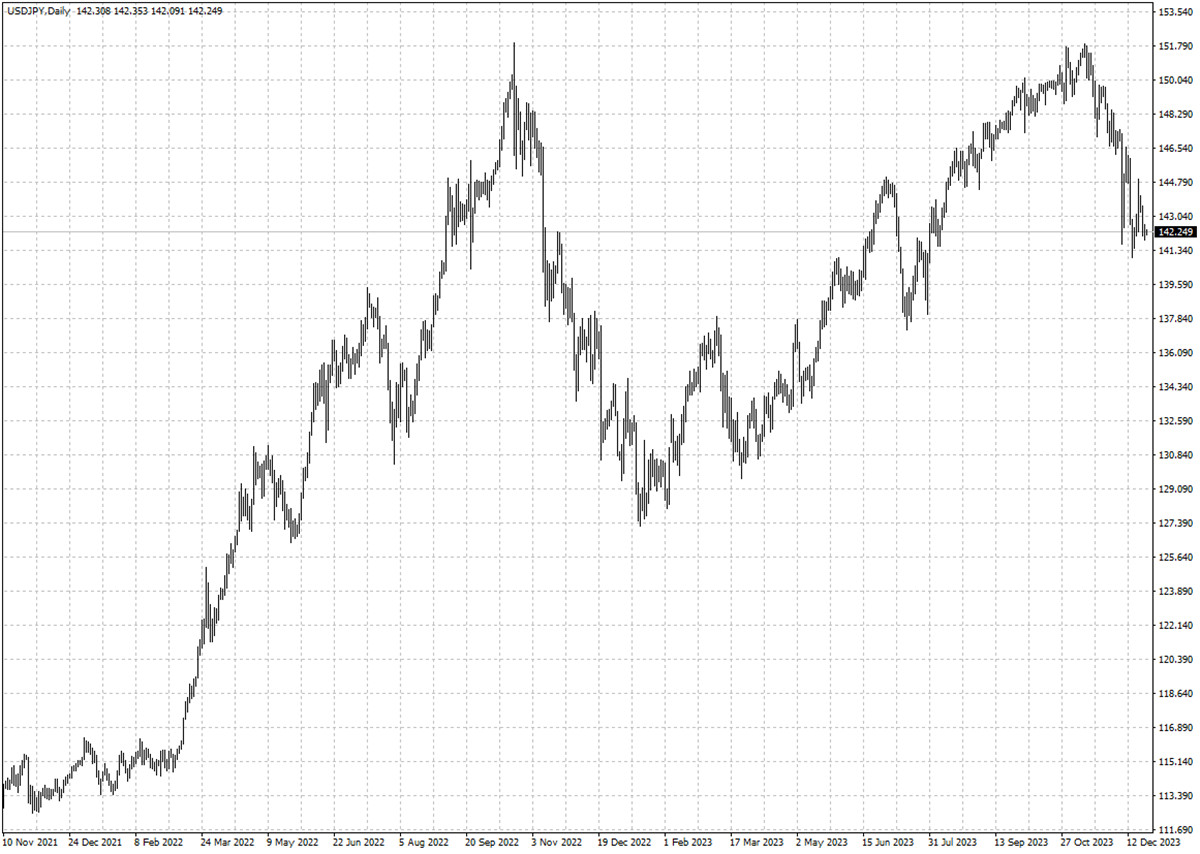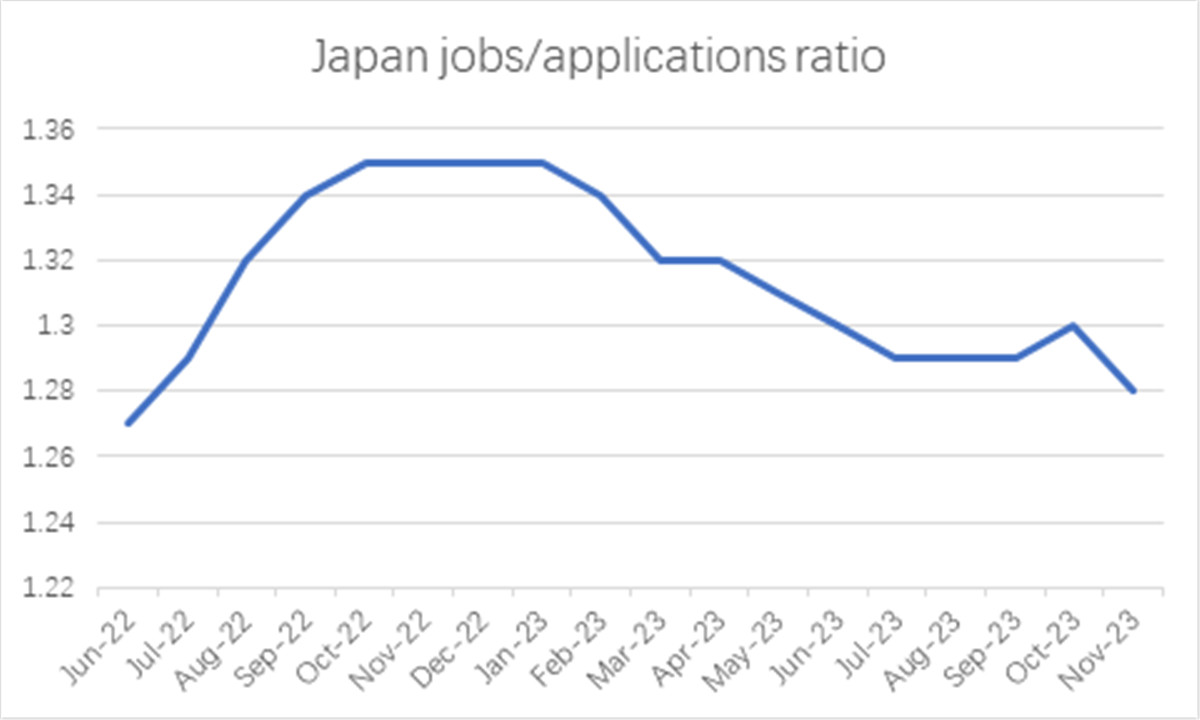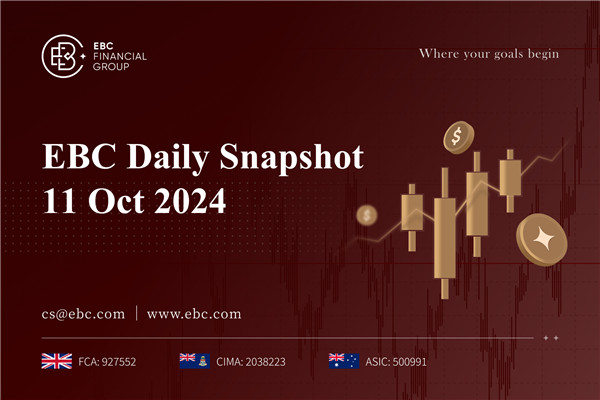Asset managers turned bullish on the Japanese yen for the first time since
May as the BOJ will likely end its ultra-easy policy in 2024 while its major
peers cut interest rates.
The currency hit its highest since the end of July against the dollar this
month. Still it was down nearly 8.5% year-to-date and set for its third straight
year of decline.

The Fed is preparing for potential interest rate cuts next year while the ECB
and the BOE appear to have taken a more hawkish stance. But Europeans
policymakers cannot afford to err on the side of over-tightening as the
economies are on the brink of recession.
Dollar-yen risk reversals, which are contracts that show demand for call
options to buy the yen relative to put options to sell it, also suggest that
traders are bullish on the Japanese currency.
“Asset managers are likely to keep their long positions on the yen as
speculation continues that a move is possible at the BOJ’s January monetary
policy meeting, even after there was no policy change in December,” said
Hirofumi Suzuki, chief FX strategist at Sumitomo Mitsui Banking Corp.
Exit on knife-edge
BOJ governor Kazuo Ueda said on Monday the odds were growing of achieving the
inflation target and it would consider policy shift if more evidence point to
sustainable price growth.
He said the central bank had not decided on a specific timing to change its
ultra-loose monetary policy given uncertainties over economic and market
developments.
"We will carefully examine economic developments as well as firms' wage- and
price-setting behaviour, and thereby decide on future monetary policy in an
appropriate manner."
Ueda's hawkish remarks in parliament contrasted with recent comments by
several board members warning against any premature debate of an exit, former
BOJ board member Takako Masai said.
"The sequence of the BOJ's recent communication is confusing and may narrow
its options on the exit timing by prompting traders to price in the chance of
imminent action," she said.
More than 80% of economists polled by Reuters in November expect Japan to end
its negative rate policy next year with half of them predicting April as the
most likely timing.
The thing is that raising rates at a time other central banks are loosening
could trigger a spike in the yen that hurts big manufacturers' profits and
discourages them from hiking wages, analysts say.
“It's hard to see the BOJ lifting rates much further than 0%," said Stefan
Angrick, senior economist at Moody's Analytics.
Labour market tightness
Japan’s labour market remained relatively tight in November, keeping pressure
on employers to boost pay in order to fill positions in a super-aged nation.
The job-to-applicants ratio slightly eased to 1.28, data showed on Tuesday.
The number of workers rose by 560,000 year-over-year, marking the 16th
consecutive increase.
PM Fumio Kishida on Monday urged firms to raise pay at a faster pace in 2024
than this year. The ball is now in the court of Japanese firms, which have been
passing on higher costs to consumers.
Multinationals have benefited from a weaker yen to boost exports, but small
and midsize firms find themselves in a much more difficult situation, having
been unable to raise prices.
Labour shortages are becoming increasingly severe across industries,
particularly in the services sector. The latest Tankan survey showed that
non-manufacturers experienced the worst workforce tightness in more than three
decades.
The number of bankruptcies due to manpower constraints reached 206 this year
as of October, the most since 2014, according to a report by Teikoku
Databank.

Still, the lower-than-expected job-to-applicants ratio which dipped to its
lowest since June 2022 could portend softening recruitment activities.
The run is near its end because when institutional investors turned bullish
on the yen over the past year, it soon went into retreat, said Brad Bechtel, the
global head of foreign exchange at Jefferies.
Disclaimer: This material is for general information purposes only and is not
intended as (and should not be considered to be) financial, investment or other
advice on which reliance should be placed. No opinion given in the material
constitutes a recommendation by EBC or the author that any particular
investment, security, transaction or investment strategy is suitable for any
specific person.








